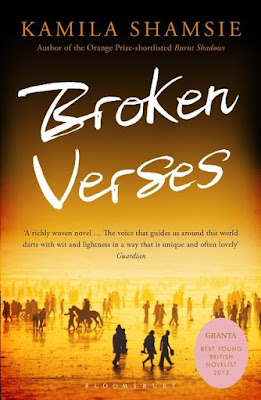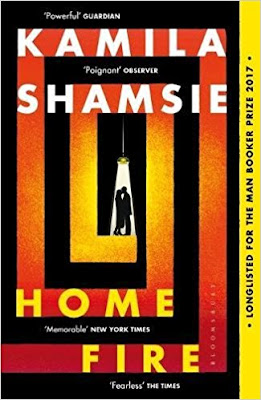Analysis of Chinua Achbe’s Things
Fall Apart and No Longer At Ease in light of Charles Larson’s Heroic
Ethnocentrism: The Idea of Universality in Literature.
Charles Larson
rejects the idea of universality in literature; he is of the view that
literature produced in one culture represents a set of values which are
peculiar to that culture only, therefore to call a piece of literature
universal is to impose these values on other arbitrarily, he writes, “when we try to force the concept of universality on someone who is
not Western, I think we are implying that our own culture should be the
Standard
of measurement”. Each culture has its own set of norms and values which are
peculiar to them. Larson writes, “For the most part, the term ‘universal’ has
been grossly misused when it has been applied to non-Western literature,
because it has so often been used in a way that ignores the multiplicity of
cultural experiences.” Larson holds that the concept which are very in vogue in
west and are parts of western culture, such as kissing, sex, love, lengthy
descriptions of country-life and the concept of hero. He analyses the African
culture and literature in comparison to that of the western and concludes that
whatever are deemed fashionable in west, are even not recognized by many people
in Africa. But does it imply that these people are inferior and uncivilized if
they don’t know the western values, he writes, “are
these attitudes so different for the African? Is the African way of life less
sophisticated than our own? Or is the belief that these supposedly ‘universal’
attitudes should be the same as ours the naïve one? Is this what we really mean
when we talk about ‘universality’ in literature—if someone does not react to
something in our literature the same way that we do, then he is to be
considered inferior? Perhaps the term itself is meaningless”. He says that the
African people instead of hero, an individual with extraordinary power,
believes in group experience, they value village, clan and tribe etc. he
therefore concludes, “The time has come when we should avoid the use of the
pejorative term ‘universal.”
Things Fall Apart:
The
novel reflects the traditional African society with its own culture untainted
by western influences. There is no mention of sex, love, and romantic
relationship between the opposite sexes. The African people have been show as
firmly believing in superstitions and myths ,the occasion of death is accorded
more importance which can rarely be found in other cultures. The society
depicted is totally patriarchal and the status and role of women is confined to domestic chores. The novel depicts traditions and customs of
the African people. There is a great focus on the laws of the tribes.
They
believe more in superstitions than in concrete things, as the passage goes, “A
snake was never called by its name at night, because it would hear”. The belief that the ghosts of the dead persons
appear and mediate in their disputes has been depicted as follows, “Each of he
nine Egwugwu represented a village of the clan . Their leader was called Evil
Forest. I am the Evil Forest I kill a man on the day that his life is sweetest
to him’. A strange practice of penalty and compensation as Achabai writes, “to
choose between war on the one hand, and on the other the offer of a young man
and a virgin as compensation”. In order to cure their disease they would resort
to other practices than medicine intake, as the passage goes, “the medicine
itself was called agadi-nwayi, or old woman. It had its shrine in the center of
Umufoia, in a cleared spot.”
In
the Nigerian culture as depicted by Achebe , “ onkonkwo has three wives and eight
children”. At another passage he writes, “ There was a wealthy man in the
Oknonkwo’s village who had three huge barns, nine wives and thirty children’.
The
people largely believed in personal achievements and those who were strong in
achieving things, Okonkwo’s father was weak in achievement as he says, “ Ask my
dead father is he ever had a fowl when he was alive’. They also believed in chi
or personal good.
The
patriarchal societal order exists in the African culture , domestic violence
against women is a common practice and was condoned. As he Achebe writes, “and
when he returned he beat her very heavily”.
They also believed in a week of peace in which violence was forbidden, “
in his anger he had forgotten that it was the week of peace”. The origin of the
practice is described as, “ our forefathers ordained that before we plat any
corps in the earth we should observe a week in which a ma does not say a harsh
world to his neighbor.”
They
people would firmly believed in tribes and clan laws and any breach of the same
would be termed a crime. As it is put, “
but the law of the land must be obeyed”. Okonkwo’s act of beating his wife is
termed by the tribal law as a severe violation , as he writes, “ you would
still have committed a great evil to beat her”. The punishment for the breach of laws is severe as he
writes, “ In the past a man who broke the peace was dragged on the ground
through the village until he died. But after a while the custom was stopped
because it spoiled the peace which it was meant to preserve”. When the boy gets killed by Oknkwo’s gun the
punishment for it is exile, “he could return to the clan after seven years”.
The architectural designs of the African people has been depicted in the noel which
is different from that of the West. Instead of apartment or villa there exists
obi, and the use of goatskin is vogue for chair. There is division of work
some are assigned to male and other to
the female as it is said, “ can I bring a chair for you, no that is a boy’s
job”.
The
western values such the concept of romantic love,sex, kissing have no room in
the African culture. The Africa people even disliked their education system and
resisted the inroads of their religion. If the values which are in vogue in Western
culture and transmitted through their literature, and the literature is called universal , then in the western
view.
If the
standard of the western measurement of literature are applied here, the African
literature will be classed as a sub literature, simply because it does not
reflect the western values which to them are universal. But in fact every culture
has got its values and customs which represent their past and present and no
single culture has the authority to declare it
values as universal and superior and judge other people’s culture and
values as inferior and less significant. It is therefore Larson opposes the
idea of university in literature.
READ ALSO
Political
issues of Pakistan.
SOCIAL
ISSUES.
CRITICAL
CURRENT ISSUES



